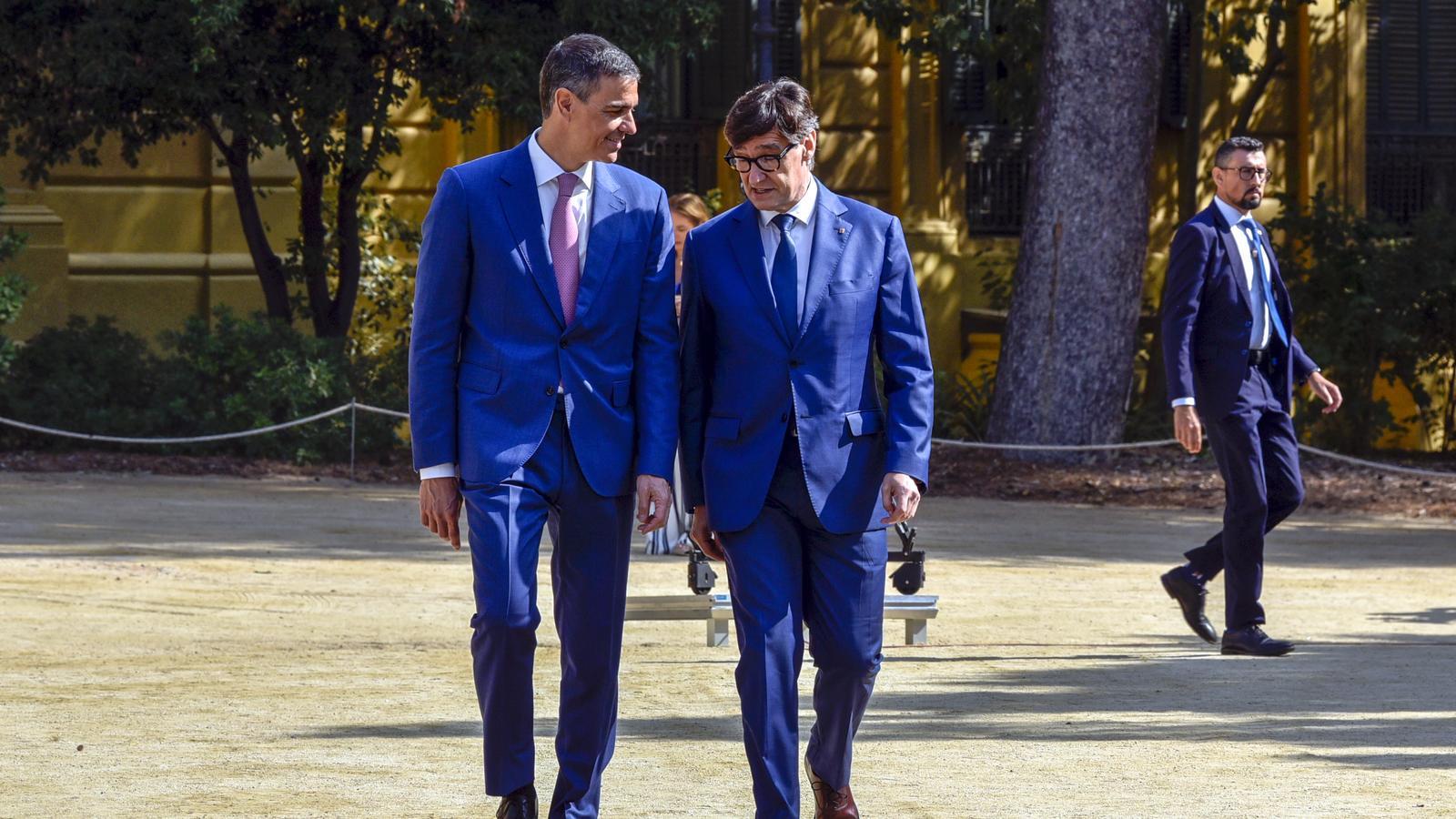Isla and Sánchez go on vacation without resolving the unique financing issue.
The Catalan government has agreed with ERC on a decree law to adapt the ATC regulations to the future Catalan Treasury.


BarcelonaThe bilateral commission between the State and the Generalitat in mid-July served to formalize the commitment of the socialists to move towards the new singular financing, but without guaranteeing ordinality or scheduling when the Catalan Treasury will begin to move forwardThe bulk of these details remain pending until September, despite the discontent of Esquerra (Republican Left), which warns that negotiations are going "badly" and directly accuses the Minister of Finance, María Jesús Montero. This Tuesday, the Catalan and Spanish governments held their final meetings before going on vacation without any further progress on the one-off financing for Catalonia, the flagship measure of the PSC and ERC agreement to inaugurate Illa, who will soon be a year in office. The hottest issue is in the kitchen sink, and that's why the Republicans are warning the Socialists that, if they want new budgets, they will have to fulfill this commitment.
Now, while awaiting details on the new model, Esquerra and the Catalan government want to move forward, and this Tuesday they announced an agreement on the new Catalan Tax Agency (ATC): a decree law that adapts its regulations so that, in the future, it will have autonomy over its personnel and more efficient governance. The Government has committed to approving it at the first Executive Council meeting after the holidays, on August 26. The objective is for the ATC to have the legal and organizational tools necessary to exercise the new powers it will assume when it collects all taxes—which represent revenues worth 30 billion euros, compared to the 5 billion it currently manages. To this end, the decree law will amend Book Two of the Catalan Tax Code, approved in 2017 and which regulates the tax administration of the Generalitat (Catalan Government). The Parliament must ratify the decree law agreed between the Government and ERC.
The decree creates two new bodies within the ATC: the Tax Agents Body—in charge of administrative processing tasks and advising citizens—and the Higher Body of Tax IT. Until now, there were no IT staff at the ATC. There are 1,500 at the AEAT. With the new decree, the ATC will also have greater autonomy in deciding its structure and will operate on the basis of a program contract. This instrument will establish the strategic lines, financial resources, and activities to be carried out by the entity.
The "complexity" of the subject matter
The news of the pact between ERC and the Catalan government broke after the executive's last press conference before the summer strike, during which no clues were given about the agreement. In any case, at the press conference, the regional minister for Territory and spokesperson, Silvia Paneque, once again underlined the "complexity" of these negotiations, in which, she said, "political noise" mingles with the technical vicissitudes of expanding the ATC (Spanish Tax Agency). "In some agreements, we have arrived on time. In others, we have required more time. With complete transparency, we try to explain the difficulties we encountered," Paneque argued.
In this context, sources from both ERC and the Catalan government have been assuming for weeks that it will be practically impossible for the ATC (Spanish Tax Agency) to collect personal income tax for 2026, as signed in the investiture pact. In fact, the Government is still studying how to scale the agency's staff and resources to be able to collect this tax, the most massive of all. A master plan commissioned by Indra on the steps to follow, which should be ready by July 31, should help. Although Paneque has said it would be "prudent" to wait until September to have this document, other sources consulted by this newspaper suggest it could arrive earlier, during the summer.
In parallel, last week the Government created A new commissioner for the Catalan Treasury and a new advisory council (although without a specific timetable) Both join the group of experts on singular financing that is still ongoing (without the report in which they were to specify their contributions to the debate on the architecture of the new model having been made public)
The dilemma with ordinality
The PSC government has avoided blaming Montero for the poor progress of the financing negotiations, but it has not come out to defend her following criticism from ERC and its leader, Oriol Junqueras, accusing her of refusing to address Catalan demands to avoid complicating her electoral future as a candidate in the Andalusian elections. "Singling out a single person in a negotiation with so many actors and complexities would not be fair," said the government spokesperson. However, Junqueras himself hinted on Monday that, in the negotiations with the Treasury, both the PSC and ERC are pulling in the same direction and that it would be the Spanish government that would be putting spokes in the wheels. These differences were already evident with the principle of ordinality. which the State did not want to assume in the drafting of the bilateral agreement nor afterwards. This Tuesday, Paneque assumed that the new model should respect this principle so that Catalonia does not lose ground in the distribution of regional resources.
Given the slowdown in negotiations, Esquerra (Revolutionary Left) is already warning that it will rely on the law and will soon present a bill in Congress to materialize the details of the new Catalan tax management. Regarding the general financing model, it will have to go through the Fiscal and Financial Policy Council, which the Spanish government plans to convene after the summer, as well as the Congress of Deputies. While figures are pending, the commitment is that it will empower the Generalitat to collect all taxes and contribute to inter-territorial solidarity and state expenditures, while guaranteeing sufficient resources to deploy its powers. But the idea is that it will be open to the rest of the autonomous regions that wish to participate.
